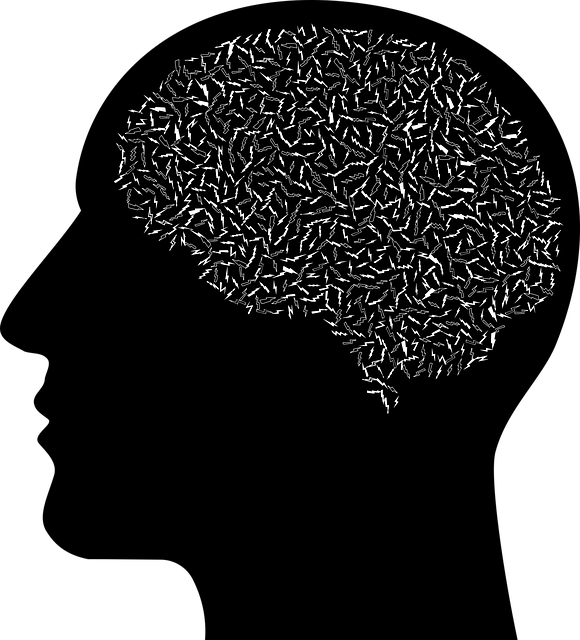Louisville offers a supportive network for mothers facing postpartum depression (PPD) through diverse healthcare providers specializing in evidence-based therapies like CBT, IPT, and mindfulness. The city's mental health community prioritizes cultural sensitivity and inclusive environments, encouraging self-care and open dialogue to address PPD, especially within marginalized groups. By combining professional therapy with community support, Louisville provides effective treatment options, empowering residents to overcome PPD and achieve lasting recovery.
“Louisville residents seeking postpartum depression therapy now have a comprehensive guide to navigate their mental health journey. This article delves into the vibrant but complex landscape of available treatments, offering insights for expectant and new mothers. From understanding local therapy options in Louisville to demystifying the diagnosis process, we provide a step-by-step approach for navigating this challenging yet treatable condition. Additionally, we explore effective treatment methods and resources, empowering mothers to prioritize their mental well-being.”
- Understanding Louisville's Postpartum Depression Therapy Landscape
- Navigating the Diagnosis Process: A Step-by-Step Guide for Mothers
- Effective Treatment Options and Resources for Recovery
Understanding Louisville's Postpartum Depression Therapy Landscape

Louisville’s landscape for postpartum depression (PPD) therapy is a vibrant and evolving tapestry of resources tailored to support new mothers navigating this often challenging phase. A multitude of healthcare providers, from psychiatrists and psychologists to certified counselors, offer specialized services aimed at addressing the unique needs of women experiencing PPD. These professionals employ evidence-based therapies, such as cognitive-behavioral therapy (CBT), interpersonal therapy (IPT), and mindfulness-based interventions, among others, to help individuals manage symptoms and restore well-being.
Beyond traditional therapeutic approaches, Louisville’s mental healthcare community emphasizes the importance of self-care practices and cultural sensitivity. Recognizing that PPD can disproportionately affect marginalized communities, therapists prioritize creating inclusive environments that foster trust and understanding. Boosting clients’ confidence in seeking help is a cornerstone of this approach, as it encourages open dialogue and empowers women to take charge of their mental health.
Navigating the Diagnosis Process: A Step-by-Step Guide for Mothers

Navigating the diagnosis process for mental illness can be daunting, especially for mothers who often bear a significant burden of care. Here’s a step-by-step guide tailored to Louisville mothers seeking postpartum depression therapy. First, cultural sensitivity in mental healthcare practice is paramount. Understanding and respecting diverse cultural beliefs and practices surrounding mental health can foster trust and open communication with your healthcare provider.
Begin by observing your emotional well-being post-pregnancy. Are you experiencing persistent sadness, anxiety, or feelings of hopelessness? Keep a journal to track symptoms, noting their intensity and duration. Next, reach out to your primary care physician for an initial assessment. They may recommend further evaluation by a specialist in Louisville postpartum depression therapy, such as a psychiatrist or psychologist, who can conduct structured interviews and administer standardized assessments tailored to perinatal mental health. Throughout this process, mindfulness meditation techniques can be incorporated to promote self-awareness and emotional regulation. Additionally, building resilience through evidence-based strategies can empower mothers to actively participate in their care and enhance recovery outcomes.
Effective Treatment Options and Resources for Recovery

In navigating mental illness, especially postpartum depression in Louisville, effective treatment options are readily available and designed to support recovery. One such option is therapy, which plays a pivotal role in managing symptoms and improving overall well-being. Qualified therapists employ evidence-based practices tailored to individual needs, focusing on cognitive-behavioral therapy (CBT) to challenge negative thought patterns and promote positive thinking. This approach has proven successful in anxiety relief, a common co-occurring disorder with postpartum depression.
Louisville also boasts community outreach programs implementing holistic strategies for recovery. These initiatives often include support groups where individuals share experiences and gain empowerment from peers facing similar challenges. Additionally, resources like online platforms and mobile apps offer accessible tools for stress management, mindfulness exercises, and positive self-care practices. By combining professional therapy with community support and the cultivation of positive thinking, Louisville residents can access comprehensive resources to overcome postpartum depression and embrace a path towards lasting recovery.
Louisville’s landscape for postpartum depression therapy is robust, offering various resources for mothers navigating this challenging phase. By understanding the diagnosis process and exploring effective treatment options, as outlined in this guide, parents can empower themselves to seek help and recover. Remember that timely intervention and access to the right support systems are key to managing mental health effectively. For those in Louisville, there is hope and help available; taking that first step towards recovery is a courageous act.








